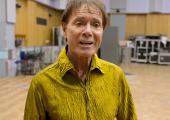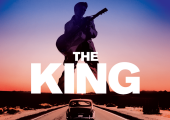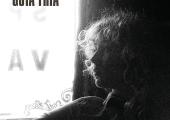Vox Lux review – music biz drama with big ideas

Natalie Portman stars as a curdled pop diva born out of tragedy
Common to the recent spate of films about aspiring singers, the theme of fame’s corrupting influence is hardly new. However, actor-turned-filmmaker Brady Corbet’s Vox Lux daringly freights this biographical sub-genre with cosmic significance, as he did the history movie with his 2015 directorial debut The Childhood of a Leader.
Sir Cliff Richard: 60 Years in Public and in Private, ITV review - bachelor boy bounces back

How the pop veteran weathered career-threatening accusations
It was when he was on holiday at his agreeable estate in the Algarve in August 2014 that Cliff Richard got a phone call telling him his Berkshire home was being raided by the South Yorkshire Police. It was the beginning of a four-year ordeal in which accusations of “historical sexual offences” threatened to crush the veteran entertainer, formerly believed to be indestructible.
Bohemian Rhapsody review – all surface, no soul

Malek’s star performance fails to save a clichéd script and characterless direction
If a Queen biopic called for drama, scandal and outrage, then Bohemian Rhapsody spent its fill in production. Several Freddies had been and gone, rumours swirling about meddling band members, and then director Bryan Singer’s assault accusations caught up with him. In a way, it’s impressive the film came out so coherent.
Matangi/Maya/M.I.A. review - not your average popstar

From asylum-seeker to Grammy-winner, documentary reveals the activist behind the music
Why is M.I.A. such a problematic pop star? Why can't she just shut up and release a hit? Tellingly, this is the very question the singer poses at the start of Matangi/Maya/M.I.A - a question she's been asked throughout her career, from interviewers to management.
The King review - the myth behind the man

New documentary uses Elvis as a metaphor for the state of the nation
The most famous face in musical history, and perhaps the instigator of modern culture as we know it; he truly was the King. But for a documentary focused on such an icon, The King touches very little on Elvis Presley the man.
CD: Beth Rowley - Gota Fría

Raw, intimate rebirth album with a generous helping of rock, blues and Americana
Gota Fría, or “cold drop”, is a Spanish weather phenomenon associated with violent rainstorms, when high pressure has caused a pocket of cold air to dissociate itself from the warmer clouds. Meteorologists, please excuse my basic and probably erroneous interpretation; the point here is that any person who’s experienced mental ill-health will likely relate to the idea of a sudden dip in temperature, a torrential downpour, and the accompanying isolation.
Robert Gordon: Memphis Rent Party review - a fast-moving Mississippi anthology

An engaging cast of characters from Memphis' musical past
“There’s a rhythm in the air around Memphis, there always has been,” Carl Perkins once said.
Hip Hop Evolution, Sky Arts review - foundations of a revolution

Originators and moguls unite for four-part documentary on the genesis of rap
Comprehensively charting hip hop’s rise from the underground to the mainstream is no mean feat, but that’s exactly what Canadian MC Shad aims to do over four hour-long episodes. Originally shown in the US in 2016, and available in full on Netflix, Hip Hop Evolution has finally reached the British box via Sky Arts.
Mood Music, Old Vic review - riveting critique of the music biz

Joe ‘Sunny Afternoon’ Penhall’s triumphant new play about the music industry really rocks
Playwright Joe Penhall and the music biz? Well, they have history. When he was writing the book for Sunny Afternoon, his 2014 hit musical about the Kinks, he had a few run-ins with Ray Davies, the band’s lead singer.
